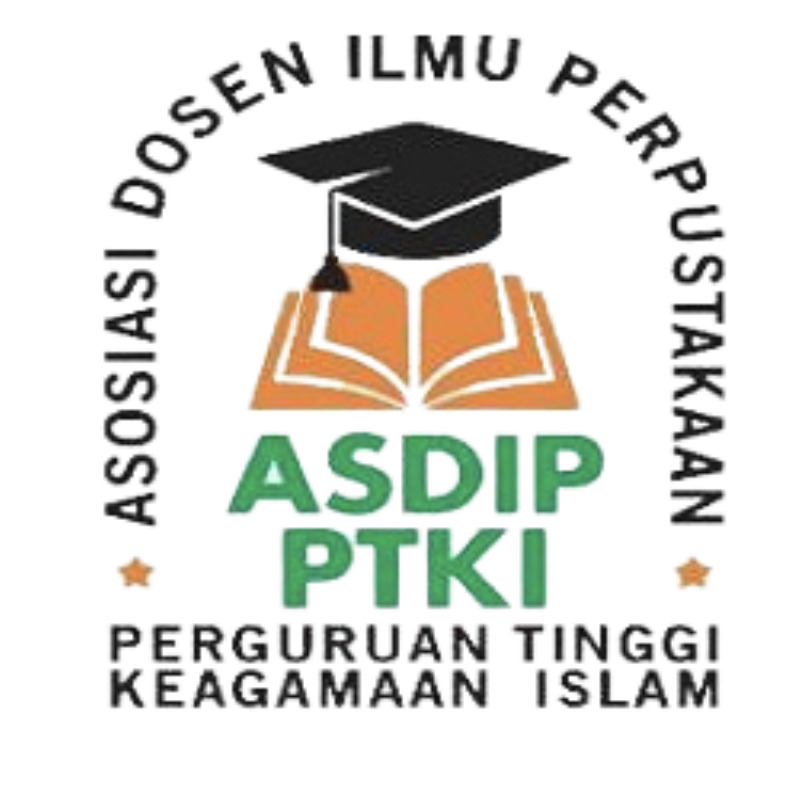Service Analysis at the Habiburrahman Grand Mosque Library Indonesian Aerospace
DOI:
https://doi.org/10.29240/tik.v7i2.7934Keywords:
Library services, Special Library, Mosque LibraryAbstract
This study aims to (1) determine the types of user services available at the Habiburrahman Grand Mosque Library Indonesian Aerospace (2) to find out the service system adopted by the Habiburrahman Grand Mosque Library Indonesian Aerospace (3) to find out the procedures for registering new members and the rules imposed in the Library of the Great Mosque of Habiburrahman Indonesian Aerospace. This research was conducted using descriptive qualitative research methods with data collection techniques such as literature studies, interviews, observations, and documentation. The results of this study show that the Habiburrahman Grand Mosque Library Indonesian Aerospace has 8 types of user services, including user education services and information literacy training, reading rooms, circulation of library materials, references, photocopies, literature searches, online catalogs, and audiovisual (AV) collections. The library service system is mixed or mixed access. For visitors who want to get these various services, especially circulation services, then they need to register themselves first as members. The member registration procedure begins with preparing certain requirements, then filling out the form as well as paying the member's dues fee. Meanwhile, there are also 8 unwritten regulations stipulated as rules in the Library of the Great Mosque of Habiburrahman Indonesian Aerospace. An interesting finding lies in the architectural design that presents the typical nuances of the Indonesian ancient mosque.
Downloads
References
Asmara, I. (2019). Analisis pelayanan perpustakaan keliling di kota Banda Aceh [Universitas Islam Negeri Ar-Raniry Darussalam]. https://repository.ar-raniry.ac.id/id/eprint/16674/1/Ira Asmara, 531202934, FAH, IP, 082368163087.pdf
Asmawardah. (2018). Pelayanan perpustakaan (Upaya untuk meningkatkan mutu pelayanan perpustakaan). Sosialisasi “Pengelola Perpustakaan Secara Profesional,†1–14. http://idr.uin-antasari.ac.id/10284/
Central Government of the Republic of Indonesia. (2007). Undang-undang no. 43 tahun 2007 tentang perpustakaan (No. 43). https://jdih.perpusnas.go.id/file_peraturan/UU_No._43_Tahun_2007_tentang_Perpustakaan_.pdf
Chorida, L. A. (2012). Kepuasan pemustaka terhadap layanan sirkulasi di kantor arsip dan perpustakaan kabupaten klaten. Jurnal Ilmu Perpustakaan, 1(1), 13–19. https://ejournal3.undip.ac.id/index.php/jip/article/viewFile/549/551
Harumiaty, N. (2013). Perencanaan layanan audio visual studi kasus pada perpustakaan universitas airlangga. Jurnal Perpustakaan Universitas Airlangga, 3(1), 33–37.
Heriyanto, Yusuf, P. M., & Rusmana, A. (2013). Makna dan penghayatan: profesi pustakawan studi fenomenologis terhadap para pustakawan pada perpustakaan perguruan tinggi. Jurnal Kajian Informasi & Perpustakaan, 1(2), 147–156. https://jurnal.unpad.ac.id/jkip/article/view/11004/4973
Himayah, H. (2013). Layanan dan Pelayanan Perpustakaan : Menjawab Tantangan Era Teknologi Informasi. Khizanah Al-Hikmah : Jurnal Ilmu Perpustakaan, Informasi, Dan Kearsipan, 1(1), 1–6.
Jain, P. (2020). Knowledge management in libraries and information centers: a bibliometric perspective. Advances in Social Sciences Research Journal, 7(4), 431–453. https://doi.org/10.14738/assrj.74.8164
Kalsum, U. (2016). Referensi sebagai layanan, referensi sebagai tempat: sebuah tinjauan terhadap layanan referensi di perpustakaan perguruan tinggi. IQRA: Journal of Library and Information, 10(1), 132–146. http://jurnal.uinsu.ac.id/index.php/iqra/article/view/305/242
Katpure, D. M. (2014). Role of prison library in changing the behavior of prisoners in Maharashtra – A Survey. https://shodhgangotri.inflibnet.ac.in/bitstream/123456789/12689/1/11.pdf
Luthfiyah, F. (2020). Manajemen perpustakaan dalam meningkatkan layanan perpustakaan. Journal El-Idare, 1(2), 189–202. http://jurnal.radenfatah.ac.id/index.php/El-idare/article/view/676/608
Nashihuddin, W. (2014). Pemahaman pemustaka dalam menelusur sumber-sumber literatur di perpustakaan PDII-LIPI. Jurnal Pustakawan Indonesia, 13(2). https://journal.ipb.ac.id/index.php/jpi/article/view/9508
Nursangadah, N. (2019). Optimalisasi layanan perpustakaan untuk peningkatan motivasi minat baca di mtsn kaliangkrek kabupaten magelang. Jurnal EduTrained, 3(2), 205–212. https://doi.org/https://doi.org/10.37730/edutrained.v3i2.14
Rahayu, L. (2014). Dasar-dasar layanan perpustakaan. In Layanan Perpustakaan (pp. 1–43). http://repository.ut.ac.id/4183/1/PUST4104-M1.pdf
Rahmah, E. (2018). Akses dan layanan perpustakaan: teori dan aplikasi. Prenadamedia Group.
Rahmawati, N. A. (2017). Penggunaan teknologi informasi dalam pelayanan sumber informasi di perpustakaan. LIBRIA, 9(2). https://jurnal.ar-raniry.ac.id/index.php/libria/article/view/2390/1732
Rochmah, E. A. (2016). Pengelolaan layanan perpustakaan. Ta’allum: Jurnal Pendidikan Islam, 4(2), 277–292. https://doi.org/10.21274/taalum.2016.4.2.277-292
Syifitri, I. (2019). Bab II Landasan Teori Perpustakaan Khusus [Universitas Islam Negeri Raden Fatah]. http://repository.radenfatah.ac.id/4876/
Zulfikar, Z., & Wasisto, J. (2018). Efektivitas metode ceramah pada layanan pendidikan pemustaka di perpustakaan daerah provinsi jawa tengah. Jurnal Ilmu Perpustakaan, 7(3), 41–50. https://ejournal3.undip.ac.id/index.php/jip/article/viewFile/22917/20954
Downloads
Published
Issue
Section
Citation Check
License
Authors who publish with Tik Ilmeu : Jurnal Ilmu Perpustakaan dan Informasi agree to the following terms:
- Authors retain copyright and grant the journal right of first publication with the work simultaneously licensed under a Creative Commons Attribution-NonCommercial-ShareAlike 4.0 International License (CC BY-NC-SA 4.0) that allows others to share the work with an acknowledgment of the work's authorship and initial publication in this journal.
- Authors are able to enter into separate, additional contractual arrangements for the non-exclusive distribution of the journal's published version of the work (e.g., post it to an institutional repository or publish it in a book), with an acknowledgment of its initial publication in this journal.
- Authors are permitted and encouraged to post their work online (e.g., in institutional repositories or on their website) prior to and during the submission process, as it can lead to productive exchanges, as well as earlier and greater citation of published work (See The Effect of Open Access).







 This work is licensed under a
This work is licensed under a 